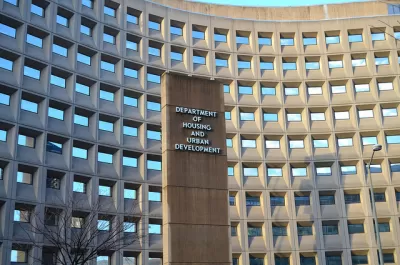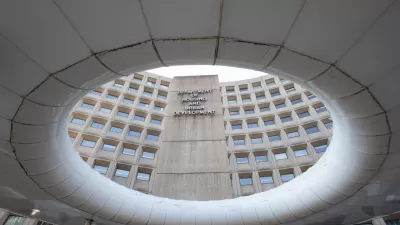The Trump Administration is gutting a key requirement of the Affirmatively Furthering Fair Housing Rule enacted by the Department of Housing and Urban Development under the Obama Administration.

"Undermining another Obama-era initiative, the Trump administration plans to delay enforcement of a federal housing rule that requires communities to address patterns of racial residential segregation," report Emily Badger and John Eligon. The Obama Administration enacted the landmark Affirmatively Furthering Fair Housing in 2015 to better enforce the Fair Housing Act of 1968—one of the primary mechanisms of that rule now hangs in the balance.
"The Department of Housing and Urban Development, in a notice [pdf] to be published Friday in the Federal Register, says it will suspend until 2020 the requirement that communities analyze their housing segregation," add Badger and Eligon. Under the Affirmatively Furthering Fair Housing rule, an Analysis of Fair Housing (AFH) was required to receive block grants and housing funding from the federal government. The notice informs cities that they "must continue to comply with existing obligations to affirmatively further fair housing"—just without performing this analysis.
According to the article, as a justification for not requiring the AFH analysis, "HUD argues that it is trying to respond to cities that have struggled with the rule’s requirements, delaying it for several years while the agency further invests in the tools communities use to assess their housing patterns."
The article includes insight from fair housing advocates who express fear that the announcement might just be a precursor to do away with the Affirmatively Furthering Fair Housing rule entirely.
FULL STORY: Trump Administration Postpones an Obama Fair-Housing Rule

Alabama: Trump Terminates Settlements for Black Communities Harmed By Raw Sewage
Trump deemed the landmark civil rights agreement “illegal DEI and environmental justice policy.”

Study: Maui’s Plan to Convert Vacation Rentals to Long-Term Housing Could Cause Nearly $1 Billion Economic Loss
The plan would reduce visitor accommodation by 25% resulting in 1,900 jobs lost.

Why Should We Subsidize Public Transportation?
Many public transit agencies face financial stress due to rising costs, declining fare revenue, and declining subsidies. Transit advocates must provide a strong business case for increasing public transit funding.

Paris Bike Boom Leads to Steep Drop in Air Pollution
The French city’s air quality has improved dramatically in the past 20 years, coinciding with a growth in cycling.

Why Housing Costs More to Build in California Than in Texas
Hard costs like labor and materials combined with ‘soft’ costs such as permitting make building in the San Francisco Bay Area almost three times as costly as in Texas cities.

San Diego County Sees a Rise in Urban Coyotes
San Diego County experiences a rise in urban coyotes, as sightings become prevalent throughout its urban neighbourhoods and surrounding areas.
Urban Design for Planners 1: Software Tools
This six-course series explores essential urban design concepts using open source software and equips planners with the tools they need to participate fully in the urban design process.
Planning for Universal Design
Learn the tools for implementing Universal Design in planning regulations.
Smith Gee Studio
Alamo Area Metropolitan Planning Organization
City of Santa Clarita
Institute for Housing and Urban Development Studies (IHS)
City of Grandview
Harvard GSD Executive Education
Toledo-Lucas County Plan Commissions
Salt Lake City
NYU Wagner Graduate School of Public Service





























